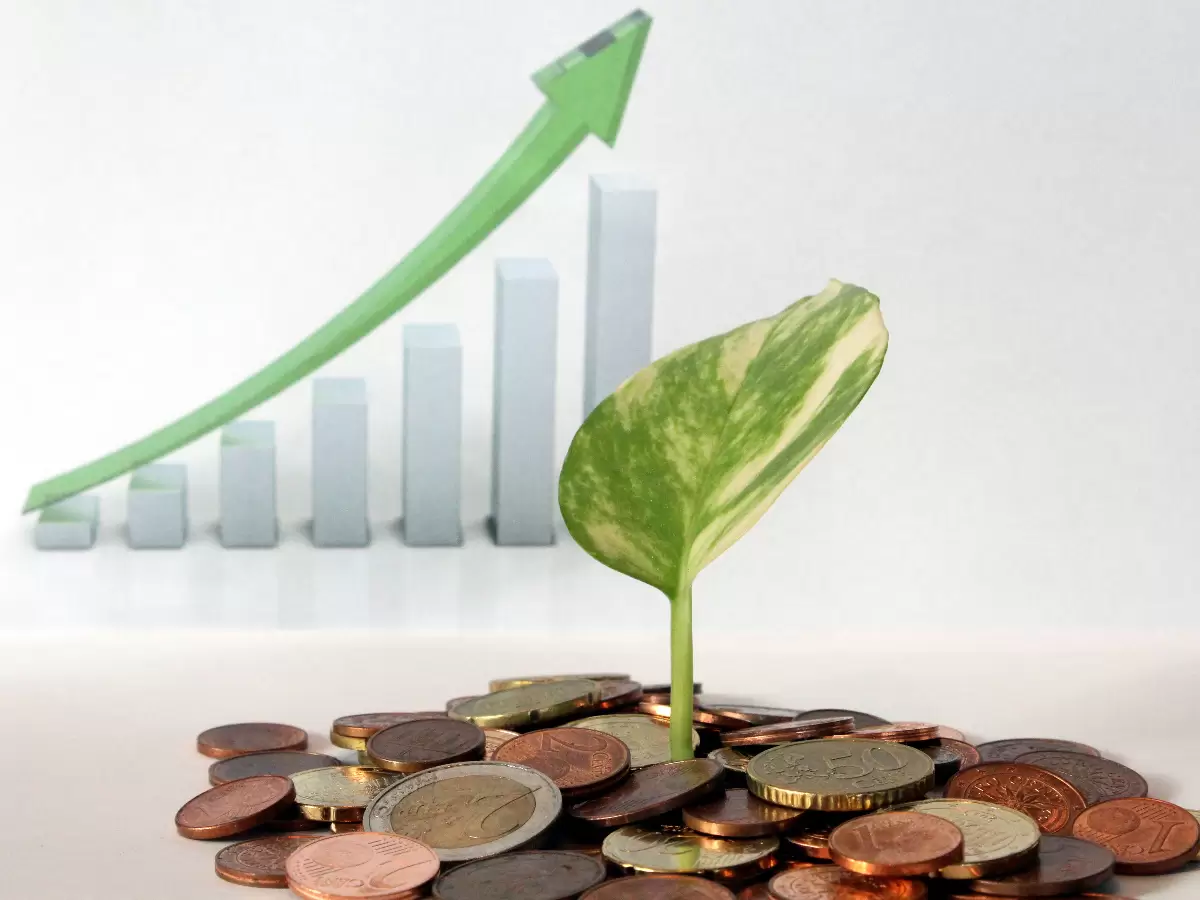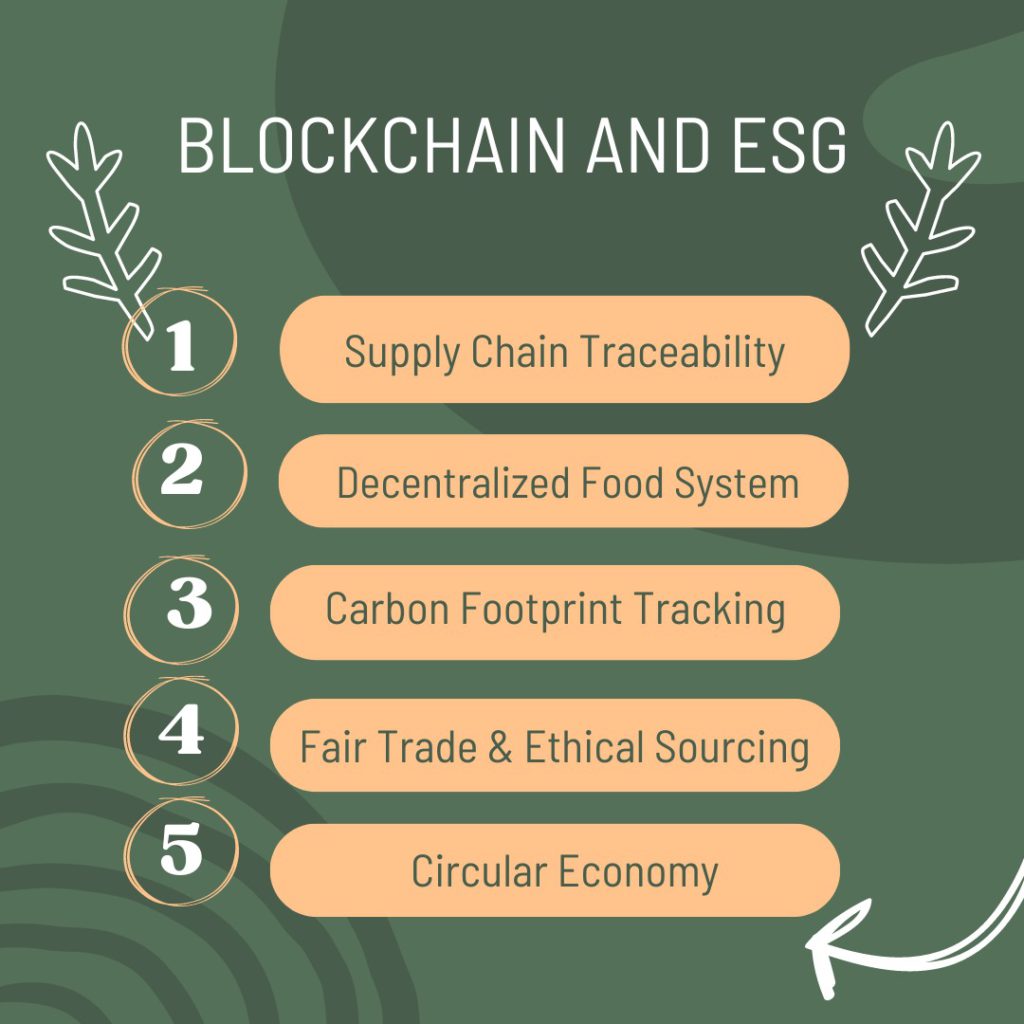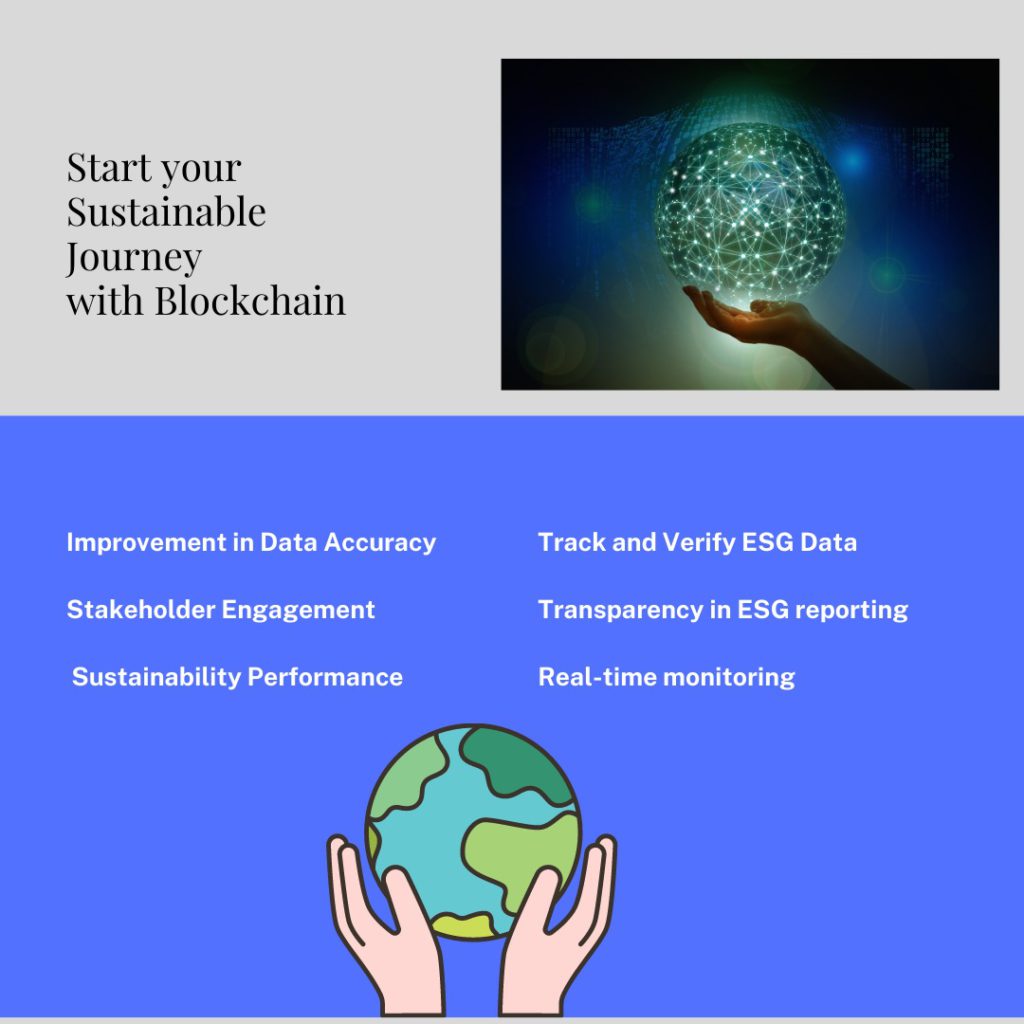Contact: +91 99725 24322 |
Menu
Menu
Quick summary: ESG factors have gained significant importance as investors, customers and other stakeholders are increasingly looking out for businesses that prioritize sustainability and social responsibility. Blockchain technology has a tremendous potential to address ESG challenges. Blockchain’s distributed ledger technology can increase transparency, traceability, supply chain management and enable businesses to achieve ESG goals.

Environmental, Social and Governance (ESG) has become increasingly important for businesses today. ESG reporting factors have gained significant importance as investors, customers and other stakeholders are increasingly looking out for businesses that prioritize sustainability and social responsibility.
There are a number of organizations that claim to stand by sustainable practices, fairtrade and ethical sourcing. How true are these claims? Are the claims accountable?
Do you know companies that fail to address ESG risks can face reputational damage, regulatory fines and other negative impacts? Businesses that prioritize ESG can benefit with improved risk management, enhanced brand reputation and more access to finance.
Blockchain technology has a tremendous potential to address ESG challenges. Blockchain’s distributed ledger technology can increase transparency, traceability, supply chain management and enable businesses to achieve ESG goals. Blockchain increases trust between the parties, improves data collection and accelerates the monitoring, reporting and verification processes. Let us explore the ways in which blockchain addresses the challenges of ESG along with real-world examples and promotes sustainability.
ESG refers to the three areas of sustainability that businesses need to consider. This goes beyond the financial performance. The environmental aspect relates to a company’s impact on the environment and how it manages its resources. The social aspect relates to how the company treats its employees, suppliers and customers while the governance covers the management, leadership and ethical practices of the company. It is necessary for businesses to integrate the ESG factors into their decision-making processes to develop sustainable strategies. It creates a long-term value for all stakeholders and contributes to a sustainable future.
Reporting on ESG and adhering to the disclosures is critical to regulators, investors and consumers. The foundation of an ESG program is built on data. An organization that integrates ESG into its corporate strategy with a relationship between the normal activities and the ESG goals are at a stronger position.
Do you know that only 9 % of the surveyed companies are actually using software that supports data collection, analysis and reporting on ESG?
The several challenges faced are.
There is no standardized reporting framework which makes it tough for investors to assess a company’s performance. The ratings and methodologies adopted makes it difficult for investors to trust the data.
Data is integral to ESG reporting. The quality and availability of ESG data varies widely across companies. The data provided is not comprehensive and this makes it difficult for investors to evaluate the performance accurately. Organizations must ensure that the data reflects real-time risks and data remains relevant and timely. In an organization, the various business units should be aligned uniformly when it comes to monitoring and reporting on ESG.
Integrating ESG data into their business goals is still a ‘nice to have’ and is not given the same importance as the financial information of a company. While mapping out the ESG goals, the leadership team should check how it trickles down into the organization and how they are incorporated into the day to day activities.
There is always a risk of companies making false claims or misleading claims to attract investors and enhance reputation. It refers to the sustainable practices or products that ignore their contribution to climate change and the sustainable development goals like pollution and biodiversity. In this scenario, evaluation and performance of companies becomes difficult.
There is no global regulatory framework for ESG reporting and disclosure and this has resulted in a lack of transparency and consistency in ESG reporting.

Blockchain helps to address the ESG challenges through transparency, traceability and accountability. Blockchain uses distributed ledgers that hold transactional records of data that is secure and immutable. It is an interlinked expanding list of records that is stored across a peer- to -peer network. Every participant on the network can view the information with no single point of failure, thereby creating trust in the system.

In the blockchain network, each node maintains a copy of the ledger which is a record of transactions that have occurred in the network and these transactions are grouped into blocks and are added in a chronological order to the previous existing blocks. These blocks are linked through cryptographic algorithms. The decentralized and distributed ledger renders it difficult to manipulate data thereby assuring security and accuracy of the data captured.
Verification of transactions is achieved by mutual confirmation among the participants, thereby avoiding the involvement of third parties. The decentralized consensus makes the blockchain immutable. Blockchains can be public or private. The public blockchains have no access control and transactions can be validated by anyone, quite unlike private blockchains that must be authorized by the owners.
The smart contracts use digital protocols to automatically execute pre-defined processes without the involvement of a third party.
Blockchain helps in capturing accurate data, automates reporting and preserves records. It gives the investors, consumers and the other stakeholders more visibility into the company’s practices followed. Let us look into the specific use cases where blockchain makes an impact on the ESG.
Blockchains can create transparency in supply chains. Recording of data at each stage in the supply chain on a real-time basis and establishing the immutable record of provenance offers farm to fork traceability. This optimizes supply demand management, enables sustainable production and consumption and builds resilience in the ecosystem
Sustainable Resource Management
Blockchain platforms collate the data on the resources like water and energy management between the stakeholders helping in more informed decision making and management of resources.
Increase Consumer Trust
The tracking of products from source to consumption on the blockchain enables transparency in the entire journey thereby assuring consumers of a quality product. It also helps ESG managers to report on the environmental impact of production throughout the supply chain and share accurate data with the consumers.
The tracking of greenhouse gas emissions at each stage of the product life cycle gives the organization an insight into where the emissions are generated and plan abatements accordingly. Blockchain helps to capture granular data and provide accuracy in their measurement. It also facilitates easy reporting and gives the stakeholders full visibility on the environmental impact of the product. Automated data collection and management of GHG emissions could be realized through smart contracts in order to access real-time and trustworthy data and prevent greenwashing.
Blockchain brings integrity into Carbon markets. Blockchain helps to track and verify the authenticity of carbon credits and make the trading process more efficient, secure and trustworthy. Blockchain technology can help to streamline and fast track the verification process of carbon credits, save verification related delay costs and make it easy for companies and project developers to participate in carbon markets and reduce their emissions.
The distributed ledger enables all the stakeholders to track their practices and provide accuracy in reporting. The single source of truth provides easy audit trail and helps companies in complying to regulatory standards. Blockchain has the power to enhance corporate reporting by enabling independent sourcing and verification of company performance.
Blockchain enabled finance platforms can potentially revolutionize access to capital and unlock potential for new investors in environmental projects. Green bonds, carbon trading and other fintech solutions are possible on the distributed ledger. It can seamlessly manage complex finance environments and integrate a number of stakeholders making it easy for projects to crowdsource funds from a number of investors.

TraceX’s blockchain powered solutions are a game changer in building sustainable food systems. The Farm Management solutions promote adoption and tracking of sustainable practices, end to end traceability brings visibility in the supply chain and enhances brand trust. The blockchain solution provides a farm to fork story of the entire product from source to consumption, driving ethical practices and accountability. The Trace CO2 module helps companies to accelerate their decarbonization journey and build integrity into voluntary carbon markets.
As the world continues to grapple with environmental and social challenges, it is likely that blockchain applications in ESG reporting and investing will continue to grow. It can help companies to accurately report their sustainability practices and allow investors to make informed decisions. It can also facilitate creation of sustainable finance instruments which can help to mobilize capital towards sustainable projects.
However, there are challenges that needs to be addressed with respect to reliable and accurate data and concerns around data privacy and security and the need for a standardized framework for sustainable reporting. Nevertheless, in the realm of ESG, the power of blockchain cannot be ignored as it can transform the way we approach sustainability and responsible investing.
